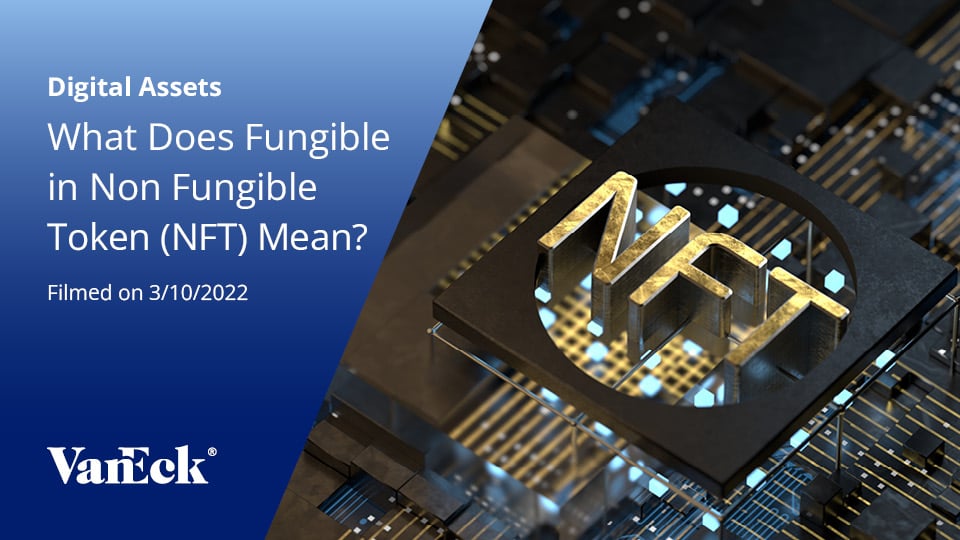What is a Crypto Wallet?
February 04, 2022
Read Time 3 MIN
Here is a riddle for you:
What is hot or cold and might be your passport to crypto wealth?
The answer: a cryptocurrency wallet. I will walk you through the concept of a crypto wallet and the difference between hot and cold wallets.
Safekeeping Your Crypto and Digital Assets in a Wallet
When you hear the term “wallet”, most tend to think of a leather-made apparatus used to hold cash and credit cards, which we often lose along with our car keys no less than three times per year. When it comes to a crypto wallet, the simple definition is that it is a place to view and manage your digital assets. The more complex explanation is that it acts as a method for proving ownership of cryptocurrencies on the blockchain, and includes tools that allow you to transact in the various digital asset marketplaces.
Each wallet is protected by a private key, or unique set of words, which you can use to import your holdings into another wallet. The key provides direct access to your crypto. It must be secured and kept from prying eyes. Keep your private keys safe.
Hot Wallets for Immediate Crypto Access and Transactions
A “hot wallet” would be one that is connected to the blockchain via the internet or leveraging cellular data. Using a hot wallet, you would store the amount you would need to make purchases and transactions. You would not necessarily hold your entire crypto savings in a hot wallet; a cold wallet would provide a pseudo-physical storage for all cryptocurrencies (more on that following).
Think of the hot crypto wallet as the one you use to make daily transactions. Perhaps you use it to transfer crypto to a friend or to buy artwork or other digital assets. Examples of these wallets include Coinbase Wallet, MetaMask, and Trust Wallet, to name a few. In this wild west-like, crypto-friendly world, the hot wallet allows you to buy, sell, or simply transact rather quickly. The downside is that because it is connected to the internet, you could be exposed to hackers or other bandits going after your crypto stash.
Give a Cold Shoulder to Would-Be Crypto Thieves!
We tend to leave the house with a couple of bucks each day, while the bulk of our savings is secured at a bank or within a secure location inside our homes. In similar fashion, it is recommended that you do the same with your crypto investments. The “cold wallet” provides you with a secure, anti-hacker method of protecting your hard-earned digital assets. There are many forms of hardware that can be used to protect crypto investments; these are similar to a USB or external hard drive. Popular brands include Trezor, Ledger, or Coldcard. These cold wallets are completely disconnected from the internet and prevent would-be thieves from gaining access through software applications on your phone or PC.
The downside to these wallets is that they are physical items that, just like a treasured bar of gold, you would need to store safely and keep secret. Additionally, the main complaint I have heard from new crypto enthusiasts is that these are not the most intuitive devices. They require a bit of setup and are less-user friendly than their hot wallet counterparts.
Tips for Safe Keeping Crypto and Digital Assets:
- Don’t tell others about your cryptocurrency holdings.
- Never take pictures with your phone or screen shots of your private key words. If you have a picture of your private key or key words sitting in the photo album on your smart phone, then you may have already put your wallet and digital assets at risk.
- If you have already made a big investment into this exciting space, then I recommend investing in yourself and learning how to transfer assets into cold storage.
For more crypto and digital assets resources, visit our Investing in Crypto education center and subscribe for updates.
For more insights to the digital assets space, check out our Digital Assets research.
Register for upcoming webinars and replays of our crypto discussions.
Follow Us
DISCLOSURES
Please note that VanEck may offer investments products that invest in the asset class(es) or industries included herein.
This is not an offer to buy or sell, or a recommendation to buy or sell any of the cryptocurrencies mentioned herein. The information herein represents the opinion of the author(s), but not necessarily those of VanEck, and these opinions may change at any time. Non-VanEck proprietary information contained herein has been obtained from sources believed to be reliable, but not guaranteed. Not intended to be a forecast of future events, a guarantee of future results or investment advice. Historical performance is not indicative of future results. Current data may differ from data quoted. Any graphs shown herein are for illustrative purposes only.
Cryptocurrency is a digital representation of value that functions as a medium of exchange, a unit of account, or a store of value, but it does not have legal tender status. Cryptocurrencies are sometimes exchanged for U.S. dollars or other currencies around the world, but they are not generally backed or supported by any government or central bank. Their value is completely derived by market forces of supply and demand, and they are more volatile than traditional currencies. The value of cryptocurrency may be derived from the continued willingness of market participants to exchange fiat currency for cryptocurrency, which may result in the potential for permanent and total loss of value of a particular cryptocurrency should the market for that cryptocurrency disappear. Cryptocurrencies are not covered by either FDIC or SIPC insurance. Legislative and regulatory changes or actions at the state, federal, or international level may adversely affect the use, transfer, exchange, and value of cryptocurrency.
Investing in cryptocurrencies comes with a number of risks, including volatile market price swings or flash crashes, market manipulation, and cybersecurity risks. In addition, cryptocurrency markets and exchanges are not regulated with the same controls or customer protections available in equity, option, futures, or foreign exchange investing. There is no assurance that a person who accepts a cryptocurrency as payment today will continue to do so in the future.
Investors should conduct extensive research into the legitimacy of each individual cryptocurrency, including its platform, before investing. The features, functions, characteristics, operation, use and other properties of the specific cryptocurrency may be complex, technical, or difficult to understand or evaluate. The cryptocurrency may be vulnerable to attacks on the security, integrity or operation, including attacks using computing power sufficient to overwhelm the normal operation of the cryptocurrency’s blockchain or other underlying technology. Some cryptocurrency transactions will be deemed to be made when recorded on a public ledger, which is not necessarily the date or time that a transaction may have been initiated.
- Investors must have the financial ability, sophistication and willingness to bear the risks of an investment and a potential total loss of their entire investment in cryptocurrency.
- An investment in cryptocurrency is not suitable or desirable for all investors.
- Cryptocurrency has limited operating history or performance.
- Fees and expenses associated with a cryptocurrency investment may be substantial.
There may be risks posed by the lack of regulation for cryptocurrencies and any future regulatory developments could affect the viability and expansion of the use of cryptocurrencies. Investors should conduct extensive research before investing in cryptocurrencies.
Information provided by Van Eck is not intended to be, nor should it be construed as financial, tax or legal advice. It is not a recommendation to buy or sell an interest in cryptocurrencies.
All investing is subject to risk, including the possible loss of the money you invest. As with any investment strategy, there is no guarantee that investment objectives will be met and investors may lose money. Diversification does not ensure a profit or protect against a loss in a declining market. Past performance is no guarantee of future results.
Van Eck Associates Corporation
Related Insights
Related Funds
DISCLOSURES
Please note that VanEck may offer investments products that invest in the asset class(es) or industries included herein.
This is not an offer to buy or sell, or a recommendation to buy or sell any of the cryptocurrencies mentioned herein. The information herein represents the opinion of the author(s), but not necessarily those of VanEck, and these opinions may change at any time. Non-VanEck proprietary information contained herein has been obtained from sources believed to be reliable, but not guaranteed. Not intended to be a forecast of future events, a guarantee of future results or investment advice. Historical performance is not indicative of future results. Current data may differ from data quoted. Any graphs shown herein are for illustrative purposes only.
Cryptocurrency is a digital representation of value that functions as a medium of exchange, a unit of account, or a store of value, but it does not have legal tender status. Cryptocurrencies are sometimes exchanged for U.S. dollars or other currencies around the world, but they are not generally backed or supported by any government or central bank. Their value is completely derived by market forces of supply and demand, and they are more volatile than traditional currencies. The value of cryptocurrency may be derived from the continued willingness of market participants to exchange fiat currency for cryptocurrency, which may result in the potential for permanent and total loss of value of a particular cryptocurrency should the market for that cryptocurrency disappear. Cryptocurrencies are not covered by either FDIC or SIPC insurance. Legislative and regulatory changes or actions at the state, federal, or international level may adversely affect the use, transfer, exchange, and value of cryptocurrency.
Investing in cryptocurrencies comes with a number of risks, including volatile market price swings or flash crashes, market manipulation, and cybersecurity risks. In addition, cryptocurrency markets and exchanges are not regulated with the same controls or customer protections available in equity, option, futures, or foreign exchange investing. There is no assurance that a person who accepts a cryptocurrency as payment today will continue to do so in the future.
Investors should conduct extensive research into the legitimacy of each individual cryptocurrency, including its platform, before investing. The features, functions, characteristics, operation, use and other properties of the specific cryptocurrency may be complex, technical, or difficult to understand or evaluate. The cryptocurrency may be vulnerable to attacks on the security, integrity or operation, including attacks using computing power sufficient to overwhelm the normal operation of the cryptocurrency’s blockchain or other underlying technology. Some cryptocurrency transactions will be deemed to be made when recorded on a public ledger, which is not necessarily the date or time that a transaction may have been initiated.
- Investors must have the financial ability, sophistication and willingness to bear the risks of an investment and a potential total loss of their entire investment in cryptocurrency.
- An investment in cryptocurrency is not suitable or desirable for all investors.
- Cryptocurrency has limited operating history or performance.
- Fees and expenses associated with a cryptocurrency investment may be substantial.
There may be risks posed by the lack of regulation for cryptocurrencies and any future regulatory developments could affect the viability and expansion of the use of cryptocurrencies. Investors should conduct extensive research before investing in cryptocurrencies.
Information provided by Van Eck is not intended to be, nor should it be construed as financial, tax or legal advice. It is not a recommendation to buy or sell an interest in cryptocurrencies.
All investing is subject to risk, including the possible loss of the money you invest. As with any investment strategy, there is no guarantee that investment objectives will be met and investors may lose money. Diversification does not ensure a profit or protect against a loss in a declining market. Past performance is no guarantee of future results.
Van Eck Associates Corporation



